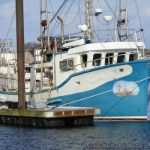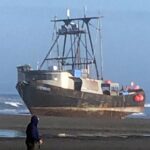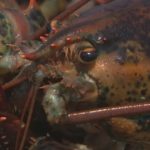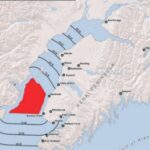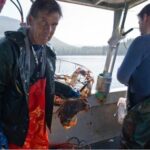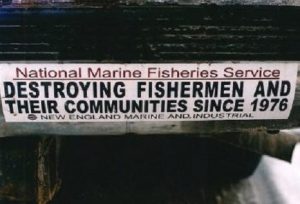Daily Archives: July 11, 2024
Fishermen get probation, fines for scheme to avoid herring quotas
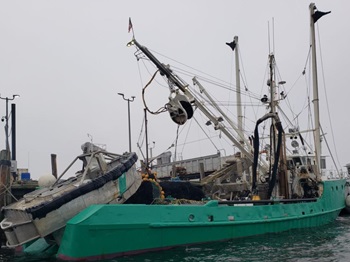 Eight men from Maine and one from New Hampshire – comprised of the owner, captains, and crew members of a commercial fishing vessel, the Western Sea, and owners of local Maine fisheries – have been sentenced for knowingly subverting commercial fishing reporting requirements. The final six sentences in the complex case were handed down this week by U.S. District Judge Jon Levy in U.S. District Court in Portland, the U.S. Attorney’s Office said Thursday July 11. The Western Sea is a fishing vessel that operated out of Rockland and fished for Atlantic herring. Atlantic herring is the primary bait fish for Maine’s lobster industry. more, >>CLICK TO READ<< 19:49
Eight men from Maine and one from New Hampshire – comprised of the owner, captains, and crew members of a commercial fishing vessel, the Western Sea, and owners of local Maine fisheries – have been sentenced for knowingly subverting commercial fishing reporting requirements. The final six sentences in the complex case were handed down this week by U.S. District Judge Jon Levy in U.S. District Court in Portland, the U.S. Attorney’s Office said Thursday July 11. The Western Sea is a fishing vessel that operated out of Rockland and fished for Atlantic herring. Atlantic herring is the primary bait fish for Maine’s lobster industry. more, >>CLICK TO READ<< 19:49
Maryland Watermen’s Microloan Program Assists “Generational Watermen”
 The Maryland Agricultural and Resource-Based Industry Development Corporation (MARBIDCO) is once again offering its Maryland Watermen’s Microloan Program to assist “generational watermen” with the purchase of needed equipment via low-interest, unsecured loans. An advantage of this loan program is that if all payments are made as agreed to by the borrower, MARBIDCO will forgive a portion of these payments towards the end of the loan agreement. “With the support of Maryland’s Governor and General Assembly, changes were made to MARBIDCO’s Maryland Watermen’s Microloan Program during the recent legislative session to better serve the commercial watermen community with the inclusion of the Potomac River Fisheries Commission (PRFC) licensed fishermen and the potential raising of the maximum loan amounts”, said MARBIDCO Executive Director, Steve McHenry. more, >>CLICK TO READ<< 15:27
The Maryland Agricultural and Resource-Based Industry Development Corporation (MARBIDCO) is once again offering its Maryland Watermen’s Microloan Program to assist “generational watermen” with the purchase of needed equipment via low-interest, unsecured loans. An advantage of this loan program is that if all payments are made as agreed to by the borrower, MARBIDCO will forgive a portion of these payments towards the end of the loan agreement. “With the support of Maryland’s Governor and General Assembly, changes were made to MARBIDCO’s Maryland Watermen’s Microloan Program during the recent legislative session to better serve the commercial watermen community with the inclusion of the Potomac River Fisheries Commission (PRFC) licensed fishermen and the potential raising of the maximum loan amounts”, said MARBIDCO Executive Director, Steve McHenry. more, >>CLICK TO READ<< 15:27
Lower prices mark the end of spring lobster season
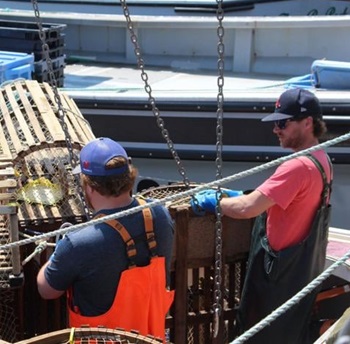 Lobster fishers were reflecting on what many have seen as a good spring season. “This season is pretty well on par with last season,” said Jake Hackett, a fisherman in Seacow Pond. “I’ve been fishing for five years here, and it’s the best season we’ve seen, so it’s going pretty good that way.” While most fishers haven’t missed any time on the water, their season did see a delay to its beginning. Originally, this year’s spring season was due to begin April 29, but poor weather conditions in the lead up made it too dangerous for fishers to head out. After days of waiting, they were finally able to head out, and Landing Day was set for July 4. Despite the good weather and good catches, price continues to be an issue. At the start of the season, fishers were getting $7.75 for canners and $9 for markets, but those prices have since gone down. Toward the end of the season, fishers were getting $6.50 for canners and $6.75 for markets. more, >>CLICK TO READ<< 12:42
Lobster fishers were reflecting on what many have seen as a good spring season. “This season is pretty well on par with last season,” said Jake Hackett, a fisherman in Seacow Pond. “I’ve been fishing for five years here, and it’s the best season we’ve seen, so it’s going pretty good that way.” While most fishers haven’t missed any time on the water, their season did see a delay to its beginning. Originally, this year’s spring season was due to begin April 29, but poor weather conditions in the lead up made it too dangerous for fishers to head out. After days of waiting, they were finally able to head out, and Landing Day was set for July 4. Despite the good weather and good catches, price continues to be an issue. At the start of the season, fishers were getting $7.75 for canners and $9 for markets, but those prices have since gone down. Toward the end of the season, fishers were getting $6.50 for canners and $6.75 for markets. more, >>CLICK TO READ<< 12:42
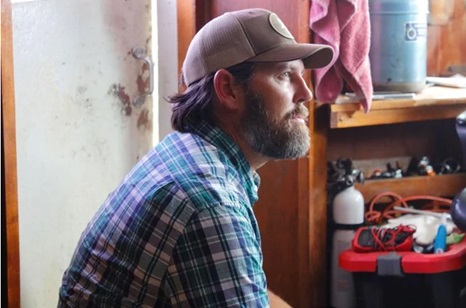
Wake Up Call Aboard The Pamela Sue
Carolina Seafood sits on Jeremy Creek, a creek named after King Jeremy, a Seewee Indian chief whose tribe lived along the creek’s banks. There I met Capt. Bryan Jones. He catches shrimp, no easy task. Besides the hard and dangerous work, he must overcome many a challenge. Capt. Jones showed me around his boat, Pamela Sue. Making our way through and past an assemblage of ropes, pulleys, nets, chains, and cables I filed a mental note. “Never bring a tripod onto a shrimp boat’s deck.” The chance of snagging something dangerous is great. Capt. Jones and I sat in the wheelhouse of his 1958 boat. As he discussed shrimping’s challenges, I looked around. I noticed bunk beds right away. Shrimpers sleep in their floating office, their home away from home. I saw too a small galley and a handsome wooden wheel caught my eye. And something else. An array of sophisticated electronics that navigate and portray bottom conditions and more. more, >>CLICK TO READ<< 10:33
U.S. fisheries could be devastated by Supreme Court’s ending the Chevron doctrine
 Loper Bright Enterprises v. Raimondo the Supreme Court’s late June decision on regulatory agency authority, heralds the much-anticipated end of the 40-year-old Chevron doctrine, which required courts to defer to federal agencies when interpreting laws. No doubt, much will be written in the coming weeks about the impacts of Chevron’s demise on the administrative state. But, at its core, Loper Bright is a case about fisheries. What then are the implications of this decision for both the fishermen and the healthy fisheries of the United States? This case comes at a critical time for U.S. fisheries. Historically, the U.S. has seen many notable economically and culturally ruinous fisheries collapse — from the Atlantic cod collapse of the 1990s to the current collapse of Pacific salmon. The Magnuson-Stevens Act created the framework for the protection of U.S. fisheries and has been moderately successful since its enactment. more, >>CLICK TO READ<< 09:21
Loper Bright Enterprises v. Raimondo the Supreme Court’s late June decision on regulatory agency authority, heralds the much-anticipated end of the 40-year-old Chevron doctrine, which required courts to defer to federal agencies when interpreting laws. No doubt, much will be written in the coming weeks about the impacts of Chevron’s demise on the administrative state. But, at its core, Loper Bright is a case about fisheries. What then are the implications of this decision for both the fishermen and the healthy fisheries of the United States? This case comes at a critical time for U.S. fisheries. Historically, the U.S. has seen many notable economically and culturally ruinous fisheries collapse — from the Atlantic cod collapse of the 1990s to the current collapse of Pacific salmon. The Magnuson-Stevens Act created the framework for the protection of U.S. fisheries and has been moderately successful since its enactment. more, >>CLICK TO READ<< 09:21

The Codfather’s 2nd act: ‘I’m the bank now’
It was February 2021, and Rafael, the infamous New Bedford fishing mogul known as “the Codfather,” was serving out the final stretch of an almost four-year prison sentence. He and his two daughters placed a $770,000 bid to acquire the Merchants National Bank building in downtown New Bedford. The historic sandstone building with tall, arched windows and an ornate ceiling no longer functions as a commercial bank. It’s vacant, and there is no money locked behind its heavy, iron vaults. But for the 71-year-old Rafael — flush with more than $70 million in cash from the court-mandated sale of his fleet and barred from ever again involving himself in the commercial fishing industry — acquiring the bank set the stage for a second act. more, >>CLICK TO READ<< 06;48


































